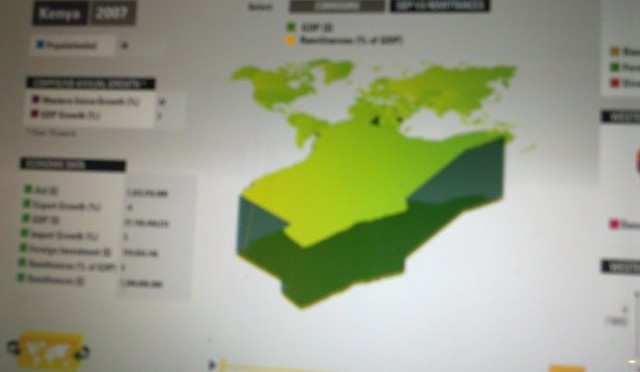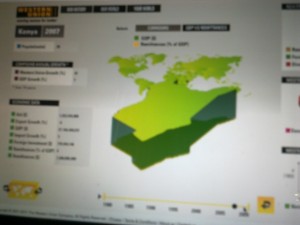The post is based on random thoughts on education in Kenya spurred by events like the Loreto Msongari bus accident, to talks with school administrators, observing universities take over libraries and nursery schools to expand their class sizes, reading blogs, and getting lots of press releases some of which touch on the education sector in Kenya .
Who will build schools?: With the cost of real estate going up in Nairobi (Kshs 100 million [$1.1 million] for an acre in some parts) it is getting harder to imagine how more schools can be built to cater for the young growing population.
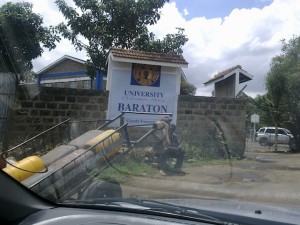 Former Nairobi nursery school, now a university campus
Former Nairobi nursery school, now a university campus
Schools like Makini (profiled in this story in the Business Daily ) have grown from having 8 students to over 1,000 after many years of hard work and success, that they now have eleven (11) streams of primary school pupils. Also, due to demand for places, some nursery schools have long waiting lists, and advise parents to register/book places for prospective students , before the children are even born.
Value in education is found in other places, like the recent Hillcrest settlement, which concluded a decade-long running bank receivership by way of new investments by a venture capital fund and a private school chain (Rose of Sharon) who will continue to run and expand the school.
What about old schools?: This post by Rookie Manager further points out the waste of resources that parents throw by enrolling their children in newer private and expensive private schools and wonder if by channeling the same funds towards rehabilitating old existing public schools would go a lot further. These old schools have the advantage of being located in established neighbourhoods and have ample space for various educational pursuits
What about new parts of the city? Nairobi is growing driven by private sector housing developments, notably in the Kitengela and Southern parts of the City, but this s not being matched in terms of education.
One touted solution comes from the Bridge International Academies who offer a low-cost school model designed to quickly roll out in low-income areas and offer quality education at a cost of about $4 per month for each child. However a blog post was written that offered s contrarian assessment about the system and this elicited a comment in response and explanation of the program from the co-founder.
The anticipated demand for schools has also become point of controversy in China with a investment fund that plans to build 1,000 schools in Africa.
In terms of Curriculum & research, G33kdiary has a post on the current hunger situation in Kenya and she notes that Kenya’s food security is unlikely to improve as long as schools don’t teach agriculture and emphasize & promote farming livelihoods, while White African had another on the lack of Africa ICT research
Recent Financial incentives: recent ones of note include:
- South Sudan is offering to pay loans for her nationals in the USA provided they have completed their education (bachelor’s degree, master’s degree or PhD.) and are willing to return home to work (The pilot program is called the South Sudan Student Loan Forgiveness Program – SSSLFP).
- Eagle Africa (former AIG Insurance) recently launched a low cost insurance plan to protect kids from road accidents playground incidents – it covers the entire time an insured student is in the hands of the institution including travel to and from the school.
- Having adequate savings to fund education is one constant constraint, and financial funds like British American (who just had a 60% subscription in their IPO) is one of them; Britak offer education savings plans – called Super E plus, Elimu Bora, and Invest Plus, which all offer a variety of savings, insurance, and investments.
Use of technology: Encyclopedia’s for schools was the theme of a recent talk by a visiting Wikimedia team at the iHub. They covered the need to spread knowledge to the offline population – such as to remote schools with few textbooks (but perhaps a computer), and offered a solution in the form of a single DVD from Wikimedia can hold over 1 million articles, as well as a free software tool called Kiwix which enables the articles to be read offline to teach students in remote distant parts
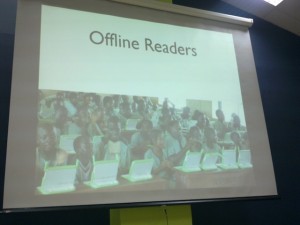 Wikimedia in education
Wikimedia in education
– iPads and Kindles : E-readers will change the way the developing world reads is an argument put forward in this post based on observations from Ghana, to Kilgoris. However, a follow-up report notes that Kindle rule changes from Amazon mean that content cannot be loaded across multiple devices at one time and each kindle has to be tethered to its own account – both of which limit its potential as a mass education tool.
The absurd: The above post title comes from an infamous Bush-ism or slip of the tongue by former American president George W. Bush.
And finally, in the news today, is a Kenyan Member of Parliament who is about to lose his seat – because one of the allegations leveled was that the MP could not articulate himself in English and Kiswahili and may have falsified his language proficiency exam results.
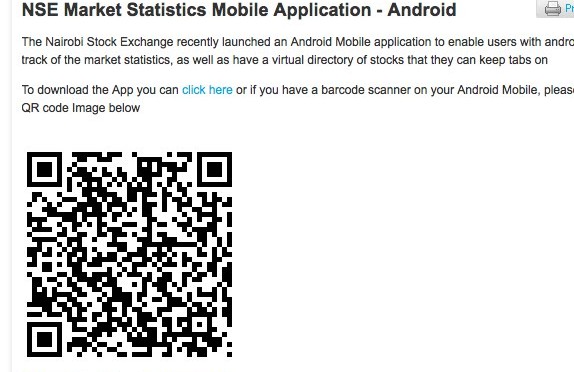
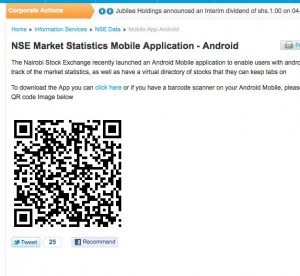 Nairobi Stock Exchange Android app
Nairobi Stock Exchange Android app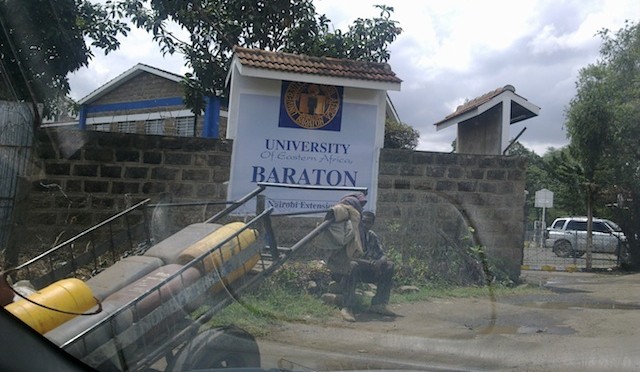
 Former Nairobi nursery school, now a university campus
Former Nairobi nursery school, now a university campus Wikimedia in education
Wikimedia in education